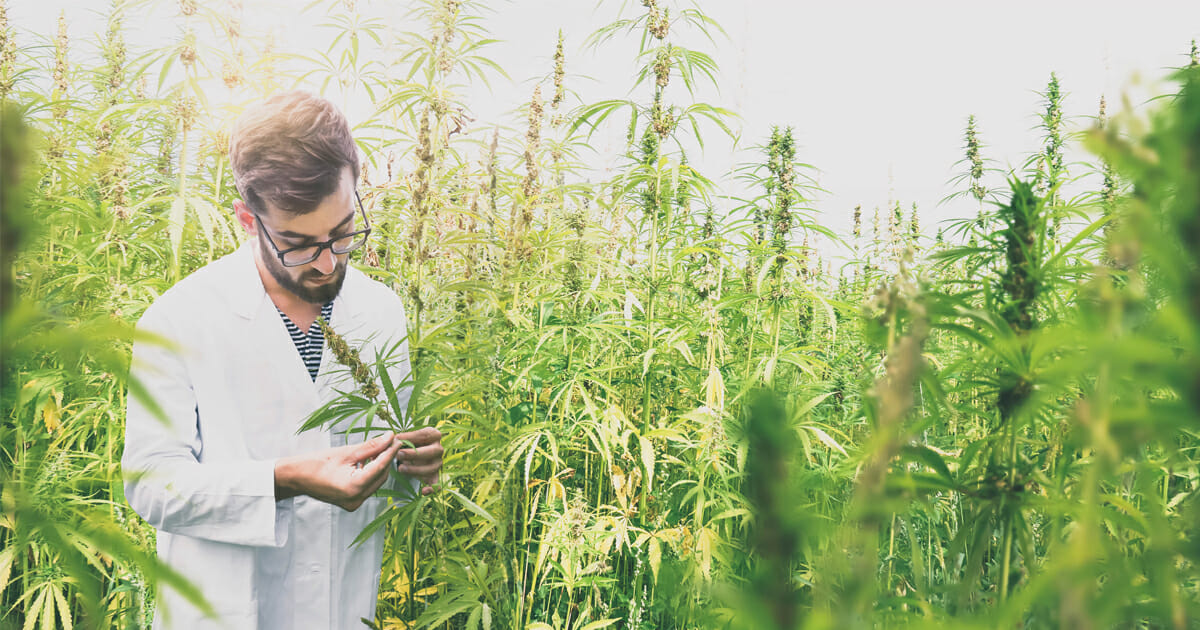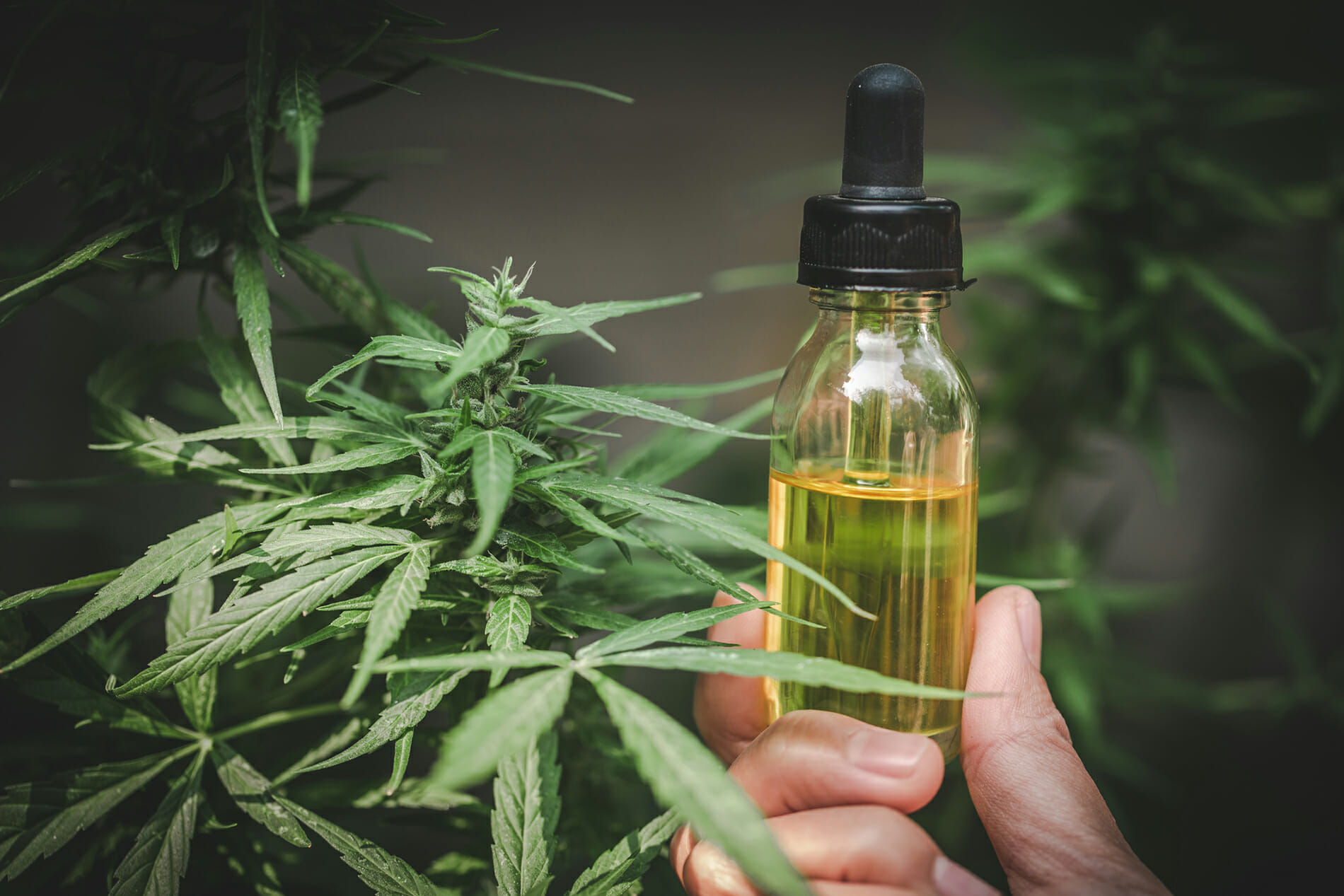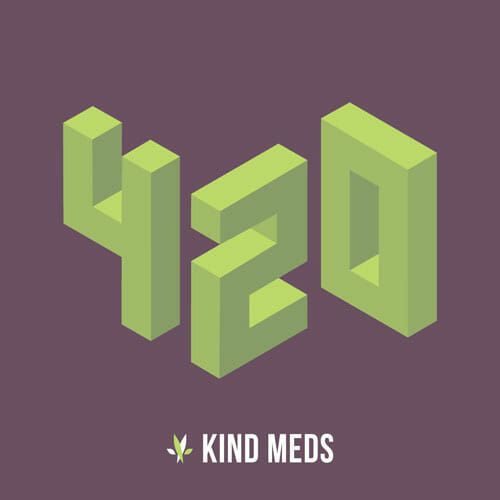Is Cannabis a Viable Mental Health Treatment Option? Part 1 of 3
Written by Chris Weatherall on Sep 1, 2020
The cannabis industry is changing rapidly across the United States, and public opinion has shifted significantly over just the last decade that shows increased public support for cannabis reform laws in states that have not already adopted such laws. As of 2020, more states allow for some type of legal cannabis use than do not, and there is growing public interest in expanding the number of medical conditions that qualify for medical marijuana approval.
One of the biggest areas of contention in the public debate about cannabis legalization is the viability of medicinal cannabis as a treatment for many mental health disorders, such as anxiety, depression, bipolar disorder, schizophrenia, and others.
What Does Available Cannabis Research Tell Us?

Many research teams across the globe have studied using cannabis for mental health, but there are several obstacles in this endeavor that must be addressed before analyzing the available research that has been conducted. First, prevailing laws concerning cannabis, especially its continued classification as a Schedule 1 controlled substance at the federal level, have made it very difficult for research to be approved. Second, marijuana affects every individual differently, and the results of any study of cannabis for mental health require careful examination of the nuanced effect this substance has on the mind and body.
Cannabis Is a Unique Substance and Treatment Method
When medical researchers and scientists develop new medications for public consumption, they look for a medicinal blend that is capable of curbing a specific symptom or set of symptoms. They determine their acceptable tolerance ranges and experiment with different formulas until they find one that produces the desired effects with minimal unwanted side effects. This type of experimentation is not really viable with cannabis.
Cannabis exists in an incredibly wide variety of different strains, and each strain can produce profoundly different effects. For example, an experienced cannabis user may have a very positive experience with one strain, enjoying a pleasant high, increased motivation, and a heightened sense of personal awareness. That same individual may try another strain that leaves them feeling depressed, unmotivated, hungry, and even irritable. The effects of cannabis on the human mind and body are so nuanced that there is no way to establish a baseline of using cannabis to treat a specific symptom. When you consider the complexity of the symptoms of most mental health disorders, the issue becomes even more convoluted.
Understanding Cannabinoids and Endocannabinoids
The two main cannabinoids found in cannabis used for medicinal purposes are tetrahydrocannabinol (THC) and cannabidiol (CBD). THC is the psychoactive substance responsible for causing the trademark “high” of cannabis consumption. CBD, on the other hand, does not produce psychoactive effects, but has proven to have a significant positive impact as an anti-inflammatory treatment, pain reliever, and mood stabilizer.
The human body also produces endocannabinoids naturally, and the CB1 and CB2 receptors in the central nervous system and peripheral nervous system activate when THC and CBD enter the system. Many mental health conditions, such as depression caused by chronic stress, interfere with the body’s ability to produce endocannabinoids naturally. Some research suggests that introducing THC or CBD to the system in such a case could potentially bolster the body’s endocannabinoid system functioning. Over time, the introduction of cannabinoids to the body could help the body’s endocannabinoid system resume normal functioning.
CBD for Mental Health Treatment

When it comes to assessing the potential efficacy of cannabis as a mental health treatment, the scientific studies conducted thus far have analyzed the effects of CBD, THC, and both for patients experiencing a wide range of mental health disorders. CBD and THC interact with the human body in different ways and produce different results.
CBD is non-psychoactive and therefore far less restricted in the United States than cannabis products with high levels of THC. There has been an explosive boom in demand for CBD products in recent years thanks to celebrities and influencers touting the success they have had at managing various conditions using all-natural CBD products, and CBD seems to offer an effective alternative to conventional treatments with pharmaceuticals for some conditions.
How Does CBD Improve Mental Health Symptoms?

When it comes to mental health, there is some research supporting the use of CBD in treating anxiety disorders, such as general anxiety disorder and social anxiety disorder. There is also evidence suggesting that CBD is effective for treating insomnia and symptoms of Post-Traumatic Stress Disorder (PTSD), and it may be helpful for people who live with Attention Deficit Hyperactivity Disorder (ADHD).
In a study on the therapeutic role of Cannabidiol in mental health, a research team analyzed the potential of CBD for treating psychosis. A test group of 40 individuals indicated that the group treated with CBD showed similar improvement to the other group treated with pharmaceuticals, but the CBD group avoided the negative side effects of weight gain, movement, or hormonal dysfunction, all of which are typical side effects of most antipsychotic drugs available today.
CBD derived from hemp with a THC content less than .3% is now legal in all 50 states, and it does not require a prescription. Many people who have tried conventional treatments for mental health disorders and found them lacking in results or responsible for adverse side effects may wish to experiment with CBD to see if it is right for them.
Can THC Offer Medicinal Benefits?
CBD and THC share many of the same medicinal benefits. They are both effective at managing pain, nausea, and anxiety, but THC has psychoactive effects whereas CBD does not. This means that THC provides a different range of benefits than CBD and may be more suitable for certain medical conditions. For example, while CBD has anti-inflammatory properties, THC can reduce muscle spasticity. While both cannabinoids are effective at curbing nausea, CBD is more suited to addressed gastrointestinal inflammation while THC can improve appetite.
The other main difference between CBD and THC is the appearance of side effects. CBD has virtually no potential to cause adverse side effects and is incredibly safe to consume on a regular basis. It causes no impairment and is available in a wide variety of products and delivery methods. THC on the other hand causes psychoactive effects, not all of which can be pleasant for users. For example, THC can cause eye redness, dry mouth, slower reaction time, memory issues, coordination problems, and an increased heart rate.
Personal Questions to Ask When Using Cannabis for Mental Health Treatment

Ultimately, there is a definite shortage of high-quality research into cannabis and mental health due to legal roadblocks that have persisted for decades. As marijuana reform gains more public support across the United States, more studies are gaining approval and new information is coming to light about the potential benefits of cannabis for mental health treatment.
At this point, there is no way to say for certain if cannabis can effectively treat a mental health condition for a specific individual without carefully assessing many nuanced factors about the individual, such as medical history, comorbidities, and many other variables.
Can you use cannabis to treat anxiety? Possibly, but it depends on the type of cannabis used, the delivery method, and the potency as well as individual factors. Can you use cannabis to treat depression? Possibly, but there is also a chance for some cannabis strains to exacerbate the symptoms of depression, and some research even suggests that prolonged use of high-THC cannabis can increase the chances of developing long-term depression symptoms.
Take an Individualized Approach to Cannabis for Mental Health
Until more research is conducted on the effects of cannabis on different mental health conditions, there is no surefire way to predict what kind of outcomes an individual should expect if they decide to treat their mental health condition with any kind of cannabis product. So far, research indicates that high-CBD, low-THC cannabis can be an effective treatment for symptoms of some anxiety symptoms, but it is essential for anyone considering this treatment option to carefully assess their individual factors that might complicate this form of treatment.
If you have experienced symptoms of a mental health disorder and conventional treatments have not met your expectations, it may be worth considering using cannabis for mental health. However, you must do so responsibly and seek the medical advice of your doctor before adding cannabis supplements or other cannabis products to your treatment plan.
Any cannabis product has the potential to cause adverse side effects. A good rule of thumb is to “start low and go slow,” meaning adding a small amount of cannabis to your routine so you can safely evaluate its effects before you go all-in on using cannabis for mental health treatment.
This is just the first part of a three-part series we’ll be publishing on the effects of cannabis on different mental health conditions. Stay tuned for part two in which we will explore the ways cannabis can potentially help those who experience depression disorders.

Chris Weatherall is a cannabis researcher and content contributor focused on cannabis genetics, product education, and industry trends. His work centers on helping consumers better understand flower, concentrates, and emerging cannabis products through clear, research-driven content.






